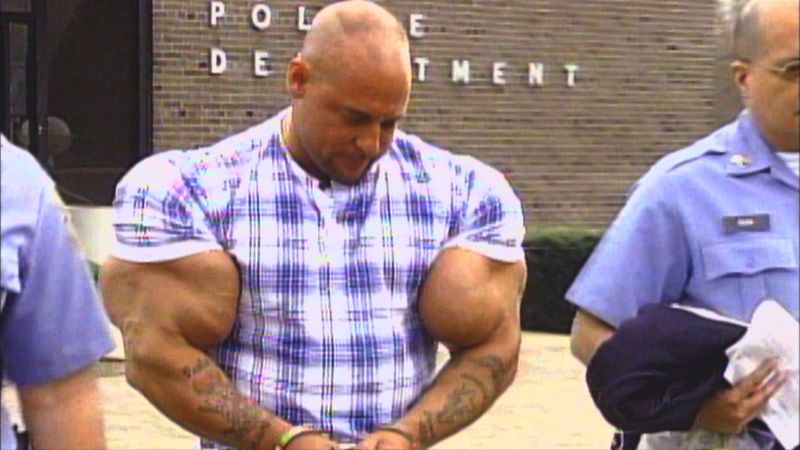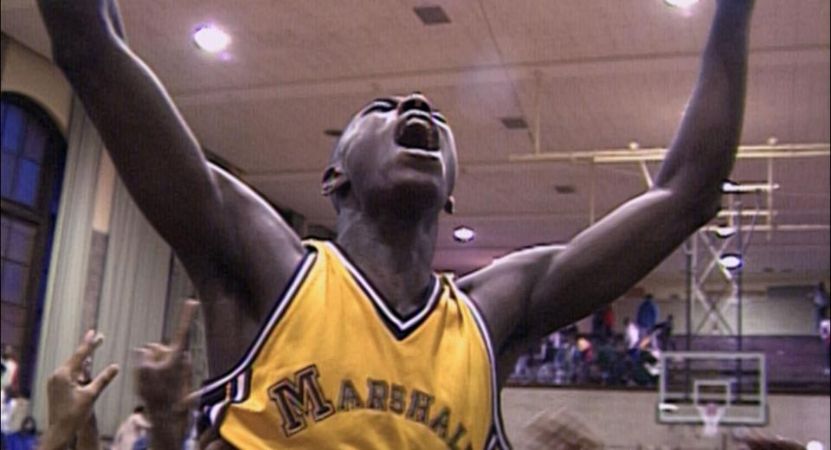In Spring earlier this year, we decided to write a column on our favourite sports movies, as we were expecting a fantastic Summer of British sport to leave us salivating for cinematic voyages. Below is our Top 5 list, along with the foreword we originally composed in anticipation of a sparkling few months of athletic action.
Well, what a Summer of sport it has been for Britain! The World Cup in Brazil has left us breathless, with Roy Hodgson’s Boy Wonders thrilling us with attacking flair up until the Semi-Finals, where they were outrageously and controversially beaten by a German side intent only on sticking their team bus in front of goal and cynically diving like Tom Daly on adenoids.
Andy Murray proved that 2013 was no fluke, and whistled his way to a second Wimbledon title, while Chris Froome showed that growing up in South Africa and living primarily in France is no barrier to becoming a British Tour de France champion! With Alistair Cook finally maturing into the astute captain and scoring runs by the bucketload, and the Commonwealth Games about to kick off in Glasgow, the thought of lycra-clad musclebound youngsters has got us more excited than Purple Aki.
So here are our favourite sport films of all time.
Raging Bull (1980)
Often recognized as one of the best films (sports or otherwise) of all time, Raging Bull is a cinematic masterpiece. Never before or perhaps since has a film truly captured the undiluted violence of boxing as it does here. The sheer brutality of the fights here make ‘Rocky’ look as tame as a ballerina tickling people with a feather duster.
Blows are underlined by thudding impacts on the soundtrack, and Scorsese used sponges concealed in the gloves and tiny tubes in the boxers’ hair to deliver spurts and sprays of sweat and blood; this is the wettest of boxing pictures, drenched in the fluids of battle. One reason for filming in black and white was Scorsese’s reluctance to show all that blood in a colour picture.
In addition to the film-making De Niro is also monstrously convincing. He trained as a boxer for months until LaMotta, who coached him, believed the actor could be a contender. His performance is true to LaMotta’s life as the growing, then raging, then gelded bull.
Kevin McGough
Bigger Stronger Faster (2008)
One of the strangest and most memorable documentaries, Bigger Stronger Faster tells the story of meathead simpleton Christopher Bell, the sad tale of his ultra-competitive weightlifting brothers Smelly and Mad Dog, and the use of anabolic steroids and other drugs in amateur and professional sports.
The first half of the documentary focuses on the lengths athletes go to in straining to be the best. In absorbing fashion, Bell dives into questioning why steroids and other doping substances are banned, while, for instance, Tiger Woods’ eye enhancement to give him 20/15 vision is not. It also includes a couple of stunning interviews. In one, US Congressman Henry Waxman, who led a campaign to ban doping substances, is completely unable to name illegal drugs, the legal age to drink alcohol and other gaffs. In the other, Carl Lewis, who controversially won the 1988 Olympic 100m Gold (dubbed ‘the Dirtiest Race in History’) after fastest runner Ben Johnson was disqualified for doping, essentially admits to doping himself.
The latter part of the documentary sees an incredible turnaround in style, and tracks a Jeremy Kyle-style family breakdown as Bell admits taking steroids to his mother, who visually implodes. His brother Mad Dog, formerly a WWE Wrestler, relentlessly pursues his dream of once again wrestling professionally, tearing his family apart and leading his father to admit that he wouldn’t be surprised to find his son dead. This pronouncement is given leaden gravity since Mad Dog was found dead aged only 37 at a rehabilitation centre shortly after the film was released.
Conal Dougan
The Armstrong Lie (2013)
Originally starting out as a somewhat celebratory film of now disgraced cyclist Lance Armstrong’s comeback year in 2009, director Alex Gibney had no choice but to shelve the project after a doping investigation in late 2012 resulted in a lifetime ban and Armstrong being stripped of his seven successive Tour De France victories. Being granted access to Armstrong just hours after his now infamous admissions to Oprah Winfrey, Gibney combined his original footage with new interviews to bring us a compelling insight into cycling’s pervasive culture of doping, the intoxicating fantasy of Armstrong’s triumphs in the face of extreme adversity and the downfall of one of the most iconic figures in sporting history.
Scott Hammond
When We Were Kings (1996)
Undeniably deserving its Best Documentary Oscar in 1996, When We Were Kings tells – superbly – the story of what is almost certainly Muhammad Ali’s most infamous fight (although many of his bouts in the early 70s could lay claim to this title so prolific was Ali at this time) – ‘The Rumble in the Jungle’ against George Foreman.
What makes director Leon Gast’s great documentary so electrifying is that it manages to convey (using tightly edited footage and direct-to-camera anecdotes from Norman Mailer, Spike Lee et al) the overwhelming sense that something monumental is happening. More than just another big-bloke punch-up, the fight was about a country putting itself on the map, and about a gifted sportsman simultaneously rediscovering his roots and facing the toughest challenge of his career.
Kevin McGough
Hoop Dreams (1994)
Following the fortunes of aspiring high school basketball prodigies William Gates and Arthur Agee over a five year period, director Steve James’ wonderful Hoop Dreams so captivated the public that its omission as a nominee for Best Documentary Feature at the 1995 Academy Awards led to an outcry that saw a complete revision of the category’s selection process. Touching on issues such as race, class and economic division, Hoop Dreams completely transcends its standing as a mere sporting documentary and serves as a powerful commentary on American life. Often heart-warming, occasionally plaintive, the poignancy of James’ film is never more apparent when Gates offers his belated response to all those who requested he never forget them should he ever make it to the NBA: “I should’ve said to them “if I don’t make it, make sure you don’t forget about me.””
Scott Hammond




